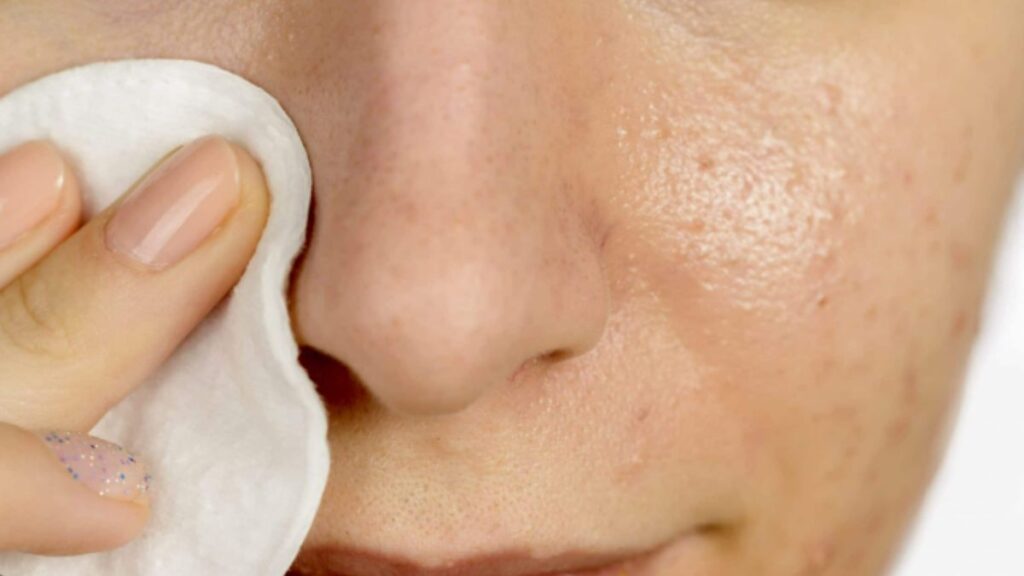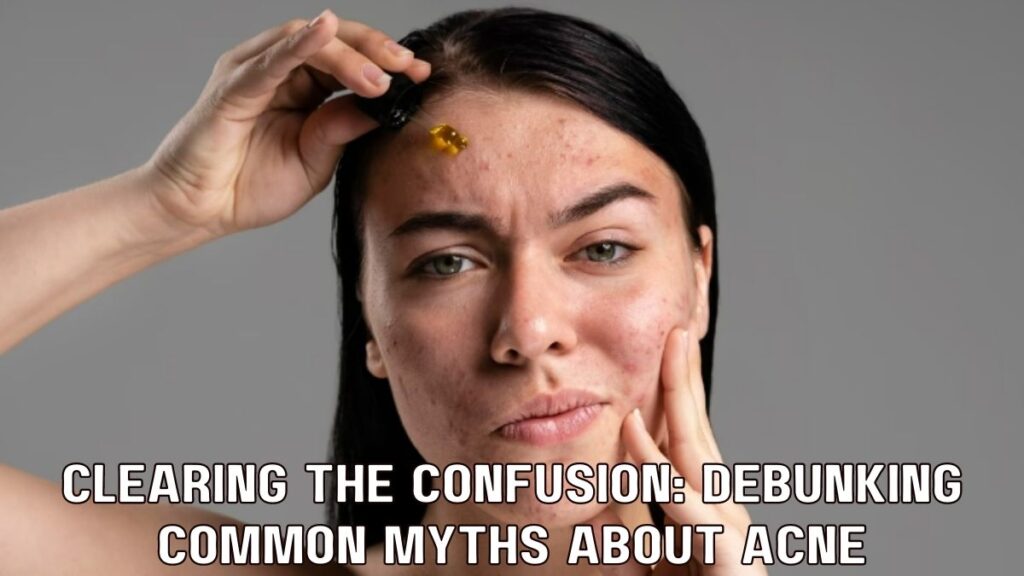Introduction:
Acne is a widely misunderstood skin condition that affects millions of people worldwide. Unfortunately, this has led to the proliferation of numerous myths and misconceptions about acne. In this blog post, we aim to debunk common myths surrounding acne, providing you with accurate information to better understand and manage this condition.
Myth 1: Acne is caused by poor hygiene.
One of the most pervasive myths about acne is that it is the result of poor hygiene or not washing the face enough. However, acne is primarily caused by factors such as excess oil production, clogged pores, and the presence of bacteria. While maintaining a regular cleansing routine is important, over-washing or scrubbing the face vigorously can actually worsen acne by irritating the skin.

Myth 2: Eating greasy foods causes acne.
Contrary to popular belief, there is no direct link between consuming greasy or oily foods and developing acne. While a healthy diet is essential for overall well-being, including skin health, acne is not solely caused by specific food choices. However, some individuals may find that certain foods, such as dairy or high-glycemic-index foods, can exacerbate their acne. It’s best to pay attention to your own body’s response and make dietary choices that work for you.

Myth 3: Only teenagers get acne.
Although acne is commonly associated with adolescence, it can affect people of all ages. Hormonal changes during puberty can certainly contribute to acne breakouts, but factors like stress, hormonal imbalances, medication side effects, and genetic predisposition can lead to acne in adulthood as well. It’s essential to understand that acne is not limited to a specific age group and can occur at any stage of life.
Myth 4: Popping pimples makes them go away faster.
Popping or squeezing pimples may provide temporary relief by releasing trapped pus, but it can do more harm than good in the long run. Picking at acne lesions can cause inflammation, increase the risk of infection, and lead to scarring. It’s best to resist the urge to pop pimples and instead rely on appropriate acne treatment methods.
Myth 5: Sun exposure clears up acne.
While sun exposure may temporarily improve the appearance of acne due to the drying effect of sunlight, it is not an effective or safe long-term solution. Sun exposure can actually lead to more harm by increasing the risk of skin damage, premature aging, and potentially worsening acne in the long term. It’s important to protect your skin from the sun using a broad-spectrum sunscreen.
Conclusion:
Debunking common myths about acne is crucial for understanding and effectively managing this prevalent skin condition. By dispelling these misconceptions, we can focus on evidence-based information and take appropriate steps to treat and prevent acne. It’s essential to consult with a dermatologist to develop a personalized skincare routine and explore suitable treatment options tailored to your specific needs. Remember, accurate knowledge is the key to achieving clearer, healthier skin and boosting your self-confidence.

